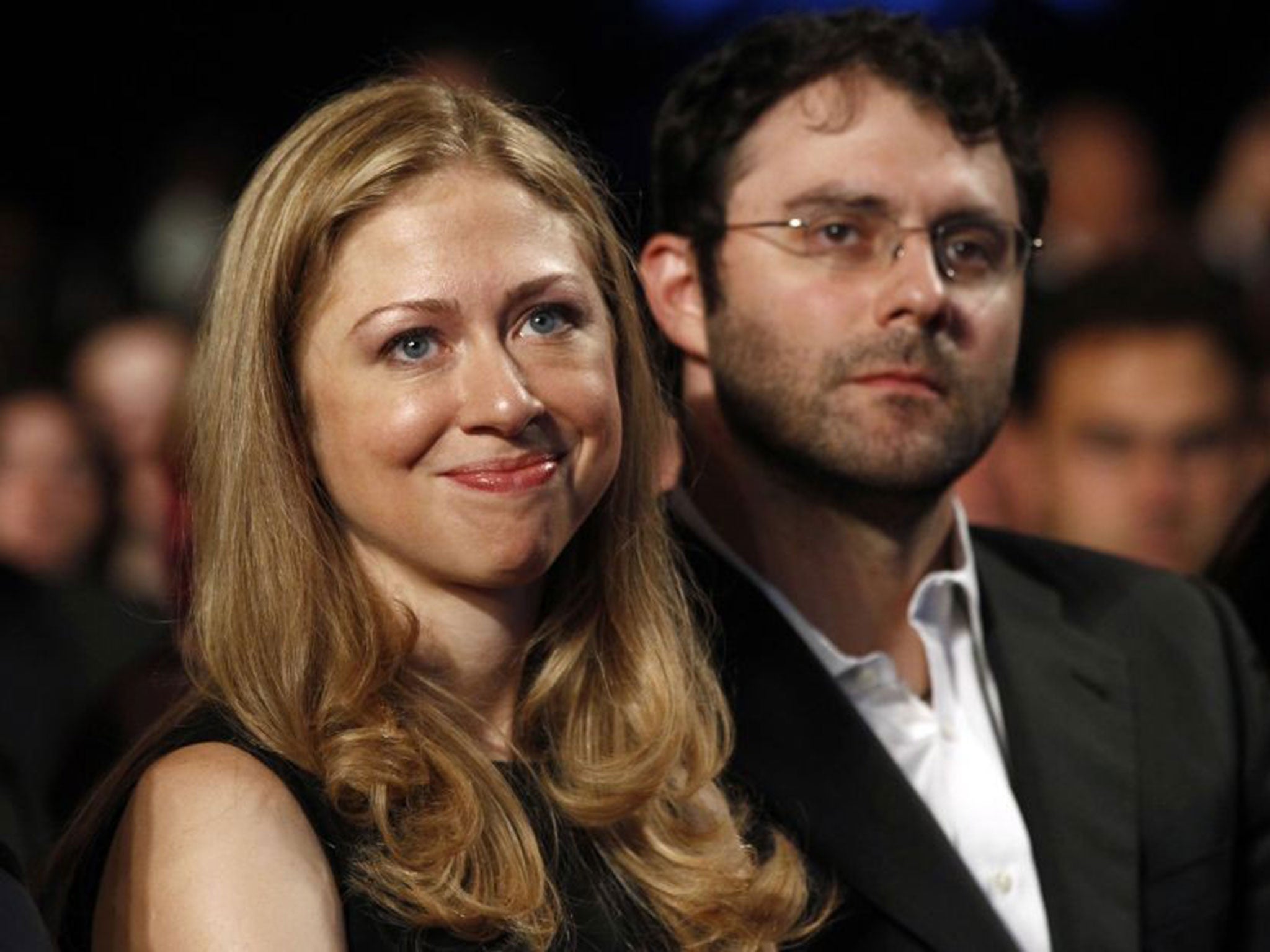Chelsea Clinton challenges Ivanka Trump over equal pay

During a forum at the Democratic National Convention on Tuesday, Chelsea Clinton tossed a question to Ivanka Trump: How will your father promote equal pay for equal work?
"Given it's not something he's spoken about," she told Glamour editor Cindi Leive. "There are no policies, on any of those fronts that you just mentioned, on his website. Not last week; not this week."
The inquiry came after Ivanka, Trump's eldest daughter, talked about the gender wage gap during her speech at the Republican National Convention, breaking from the party platform. "Single women without children earn 94 cents for each dollar earned by a man, whereas married mothers made only 77 cents," she said in a prime-time speech." Gender is no longer the factor creating the greatest wage discrepancy in this country. Motherhood is."
Her words sparked both praise and skepticism. Never had an advocate for a Republican presidential nominee raised America's pay disparities to such a wide audience. (She was mostly correct, too: Female college graduates without children still receive lower starting pay than their male counterparts, but motherhood tends to carry a stiffer wage penalty.)
Many conservatives call the wage gap a myth, arguing paycheck differences arise from worker choices, not discrimination. Government interference in the matter, they believe, could slap the face of personal liberty. Liberals, meanwhile, think the issue deserves more federal attention.
Ivanka leapt beyond merely acknowledging the gap. She declared that her father would offer a government solution.
"My father will change the labor laws that were put into place at a time when women were not a significant portion of the workforce," she said. "And he will focus on making quality child care affordable and accessible for all. Policies that allow women with children to thrive should not be novelties; they should be the norm."
Wondered my colleague Philip Bump: "Who, exactly, was Ivanka endorsing?"

Chelsea was right. November is just four months away, and Donald Trump hasn't talked about the gender pay gap. He hasn't mentioned ways to boost working mums. He hasn't laid out policy plans on child-care or maternity leave. (The Boston Globe called him out for paying male campaign staffers more.)
Hillary Clinton, on the other hand, speaks regularly on the campaign trail about lifting working families. She has also pledged to close the wage gap, perhaps the loftiest promise of her run so far.
She declares her positions on these issues on her website: "Women earn less than men across our economy -- and women of color often lose out the most. We should promote pay transparency across the economy and work to pass the Paycheck Fairness Act -- a bill Hillary introduced as senator -- to give women the tools they need to fight discrimination in the workforce."
Conservative political commentator Ben Shapiro expressed disgust over Ivanka's remarks on Twitter. "Ivanka is now preaching crap about the wage gap and mirroring Hillary's agenda on child care. Wait, is she a Dem?!?!"
Sally Kohn, the prominent liberal pundit, also tweeted disbelief. "Nice to hear Ivanka talk about wage gap and supporting affordable child care. Now can we hear Donald say it -- and how he will do it?!?"
Economists can't prove why the wage gap exists, but they know it does exist: The Census Bureau calculates the median woman in the United States makes 79 cents for every dollar paid to the median man. The gap varies by race, with black women earning 60 cents and Hispanic earning 55 cents to every white man's dollar. Parenthood also delivers a financial impact: Working mums typically make only 73 cents for every dollar paid to working dads.
Earlier this year, Cornell University economists Francine Blau and Lawrence Kahn took a swing at explaining what the numbers actually mean. They found career decisions -- occupation, industry, taking time off or scaling back after children -- accounted for roughly half the gap.
Thirty-eight percent, however, remained "unexplained." Some argue that portion comes from discrimination, conscious or otherwise, the kind that looks like a boss assuming his female employee with small children doesn't have time for a tougher role with a higher salary.
Addressing the wage gap, wherever it comes from, doesn't have to be liberal-only issue, conservative thinkers say.
"I hope Ivanka holds her father's feet to the fire on pay equity issues," said Sarah Lenti, a Republican strategist and former aide to Condoleezza Rice. "The answer is not to simply just throw them to the federal government to fix or mandate."
Lenti, a mother of two, said a conservative approach would be to reward employers who stamp out their own wage gaps. Perhaps a business that annually looks at its pay data and fixes any glaring disparities could qualify for a new tax cut.
Walter Olson, a senior fellow at the right-leaning Cato Institute's Center for Constitutional Studies, said he doesn't dispute Ivanka's thoughts on pay and motherhood -- but cautions against tweaking laws to close the pay gap.
"All legislation attempting to prescribe the terms and conditions of employment has unintended side effects as employers adjust," he wrote in an email, "and these are likely to be especially salient if the pay gap is largely or entirely the result of families' own decisions."
One such unintended side effect: After Chile required companies to provide child care to working mothers, women's wages dropped.
Olsen said a Republican politician might instead encourage fathers to take leave time and seek flexible hours, which could even the playing field for working mums, who still tend to shoulder the bulk of the burden. Also, clear the way for businesses to allow remote work. Managers could also build a work culture where telecommuting is acceptable, helping parents better juggle work and home.
Join our commenting forum
Join thought-provoking conversations, follow other Independent readers and see their replies
Comments
Bookmark popover
Removed from bookmarks